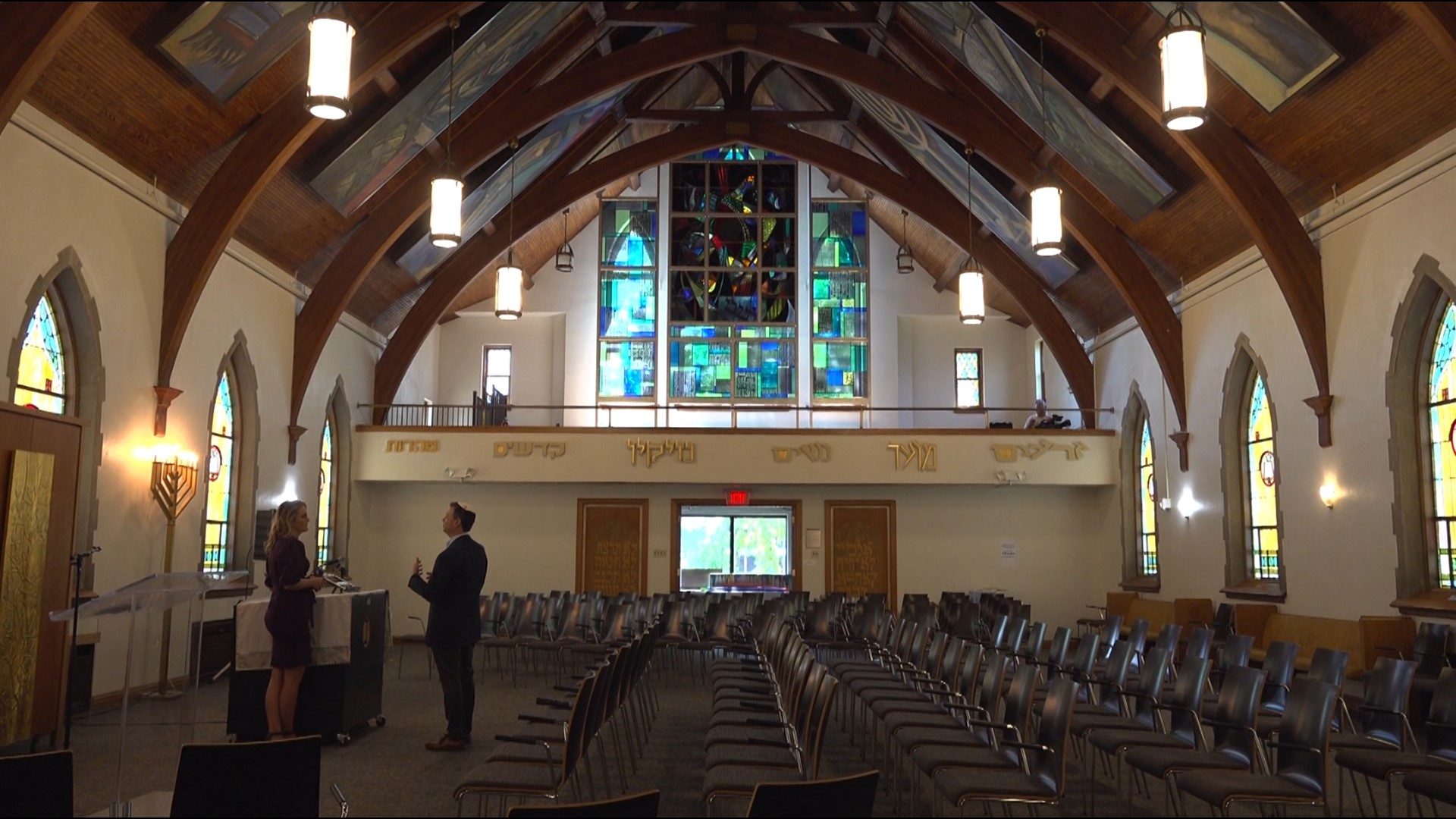CLAYTON, Mo. — When Rabbi Noah Arnow first joined the Kol Rinah synagogue in Clayton about 10 years ago, its doors were always unlocked.
Then, in 2018, everything changed.
Eleven people were killed at a Pittsburgh synagogue during Shabbat morning services. It was the deadliest antisemitic attack in this country's history.
“We realized we can't do that anymore,” Arnow said of the unlocked doors. “Every synagogue in America realized that we need to be a lot more security-minded.”
Note: This story is featured in our special program, Race: Listen. Learn. Live. Fighting Antisemitism. Watch the special here.
Kol Rinah Congregation started incorporating security measures into its every move. Arnow and several members of the synagogue went through active shooter training.
“No one wants to imagine the worst possible thing that could happen to them,” Arnow said. “That's what active shooter training prepares you for. It's awful. And when you're done with it, you feel at least a little better, maybe a little more scared, but also a little more prepared.”
Justin Sparks leads active shooter training sessions at places of worship for Tier One Tactical Solutions. He said he’s noticed an increase in violence at synagogues and those who attack them.
“These killers are cowards by nature, and for whatever reason, they become hyper-focused in this case on the Jewish faith and synagogues and the congregations they’re in,” he said.
Sparks said his company bases its training on real-life events like the one that happened in Pittsburgh.
“We put them through the training so that they can see it and feel it and smell it, so that they can understand that when this day happens at their event, hopefully it never does, but if it were to, they will be prepared and know how to respond,” Sparks said.
Security at synagogues like Kol Rinah is also seen and unseen.
“There are all kinds of things we did to make this building more secure from for the inside and from the outside,” Arnow said. “Every single thing that we do, we have to think about security and we've gotten used to it.
“It's like a muscle now, which is great. It means that we are safer and more thoughtful about everything that we do, and I wish it were not that way.”
And that takes time and money.
“If you want to exercise Judaism here, if you want to practice Judaism according to your right to exercise free exercise of religion, there's a significant security cost that the Jewish community has borne,” Arnow said. “I did not become a rabbi to have to think about security.”
Marked Clayton police cars often sit outside during times of worship.
“Every synagogue that I know of has a great relationship with their local police department across the entire state and really across America,” Arnow said. “We don't expect synagogues to have to know their local police departments, but we do. We need to know them.”
And, he said, they need to keep their doors locked.
“What I find myself saying sometimes is, 'Our doors are always locked and everyone is always welcome,'” Arnow said.

